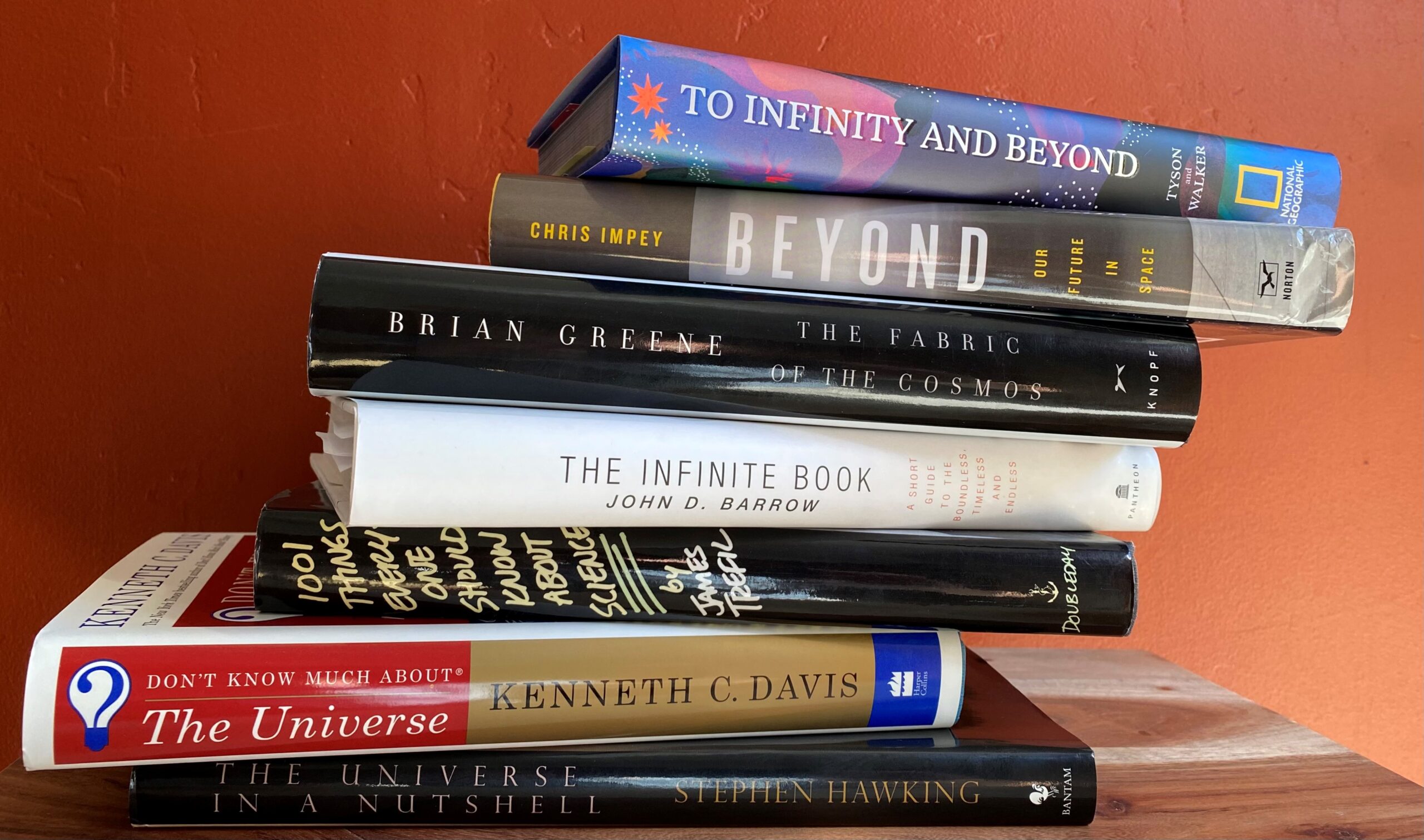
Are humans too arrogant, too ignorant … too myopic to regard the big picture, to see the forest for the trees? In the past couple of weeks, a series of wasted opportunities suggest yes; and expose a hazardous future outlook potentially even bleaker than the present. Whether it is myopia or distraction or simply absent-mindedness, the concern may be that we lose sight and control of ourselves, our country, our planet.
AGELESS POLITICS — A recent poll suggested six in ten people doubt the mental capacity of President Biden. Setting aside the constantly reinforced belief that opinion polls are mostly worthless (“… like a drunk uses a lamppost — for support, not illumination.” — Vin Scully), it seems that respondents believe Biden is too old … for no good reason.
Consider how he brings more than 80 years of life experience to his position as the most influential human being on Earth. For the sake of our country and this planet, let’s hope everyone his age — and 10, 20 … 60 years younger — awakens each day with such commitment to purpose.
Besides, Trump is only a few years younger, with demonstrably diminished mental and physical capacity. Since the choice for president is now a binary choice, let’s use common sense to set aside the bipartisan age issue.
Furthermore, it is worth noting that no adult ever says, I wish I was as smart as when I was younger. But the inverse, as Rod Stewart sang, “I wish that I knew what I know now when I was younger,” definitely does resonate. Life experience counts, for better and worse. We wise up with age. We learn as we grow and grow as we learn. Aging is an active verb, better used as a qualifier not quantifier of years. With each block of lifetime — childhood, adolescence, and young, middle and older adulthood — we experience challenges, opportunities, events, history in the making, all that defines us. Cumulatively, assuming we’re paying attention and contextualizing, the years of experience make us better individuals and members of society. This inherent advantage learned older people have over youth, to understand what it’s like to be all ages, nurtures generativity (generations supporting one another) and empathy.
LUNAR LUNACY — In a recent “60 Minutes” segment on space exploration, the NASA administrator who was interviewed was unable to clearly justify the reason for spending billions of tax dollars to go to the moon. It may help to understand his reluctance to know that the two forces leading the current push are neither the U.S. Government or NASA. But, rather two of the planet’s wealthiest and most egotistical individuals: Elon Musk via SpaceX and Jeff Bezos via Blue Origin, who suggest reasons why that are as obvious as they are pathetic: to self-aggrandize and monetize.
At least our early space missions generated national patriotism and pride. That counted for something. No longer, though, not since “patriotism” has been co-opted by xenophobic nationalists and supremacists. Today’s space race is nothing more than these dueling billionaires’ ego trip.
Oh yeah, as if the reasoning for spending billions of dollars to send humans to the Moon and Mars could be even less warranted, the NASA administrator expressed what he assumed to be a universal concern: We cannot allow the Chinese to get there first and plant their flag. And then what, call dibs?
A SUPREME WASTE — The U.S. Supreme Court decided to take the easiest possible off-ramp on the Colorado “insurrectionist” case by ruling a state cannot disqualify former president Trump from the its primary ballot. Which begs to question, shouldn’t the obvious next step be for the highest court to decide? Nope. Instead of determining how best to universally interpret the Fourteenth Amendment and appropriately embracing its role for resolving such monumental political and constitutional tensions, the justices cowardly punted to the entirely dysfunctional Congress. In word and action, SCOTUS abdicated its authority and responsibility as a co-equal branch of the government.
On the subject of insurrection, there is the bizarre juxtaposition of some people’s revisionist history regarding the events of January 6 and the negative responses on the Biden age survey. If diminished mental capacity is truly a concern, what of those who seem to have forgotten the siege on the Capitol just three years ago? Which was broadcast live. Which was provoked by inflammatory rhetoric to “stop the steal,” “fight like hell,” and “hang Mike Pence,” and emboldened by then-president Trump’s actions and then inaction. And which was categorically condemned in real time by the House and Senate’s Republican leadership. Talk about memory loss, let alone cognitive dissonance and diminished critical thinking capacity?
UNWORTHY OF AGE — And then this, which sort of makes sense of preceding three seemingly disparate story lines on aging, outer space, and governance.
A committee of geological scholars who determine the “ages” of Earth unanimously agreed that humankind’s time on Earth is not significant enough to warrant the age distinction. For the record, during Earth’s 4.6-billion-year history, the planet’s chronology has included Triassic age with dinosaurs, the Pleistocene with the last ice ages, and now the Holocene, which began about 12,000 years ago with the retreat of the great glaciers.
The scientists concluded the Anthropocene, denoting the time humans have been on Earth, is not all that transformative. Evidently, the geologic changes (For the record, this narrative arc of history is grounded in geoscientific standards, different from anthropological, cultural or artistic conditions) humans have made to the planet — for better as well as for worse — are not so consequential as to close the chapter on the Holocene. Really?
The truth is humankind’s contributions to the planet and beyond, no matter how profound we think, warrant less than a chapter and more like a mention in the index of Earth’s history. On the brighter side, such minor recognition should be both a relief and humbling when considering the enormous, potentially irreparable damage we’ve inflicted in the relative blip of time we’ve inhabited the planet.
Not worthy of a historical age designation? Perhaps a period would more applicably punctuate humans’ missed opportunities to secure a more respectable place in Earth’s history. If only we could learn from these recent misguided actions and mark the end of our civilization’s unimpressive beginning, rather than the other way around. Before a final chapter gets written, let’s at least attempt to use our remaining time to demonstrate a commitment to better inform and advance our stewardship of this increasingly fragile planet.







We need to talk about this sometime, as you know I can’t write.